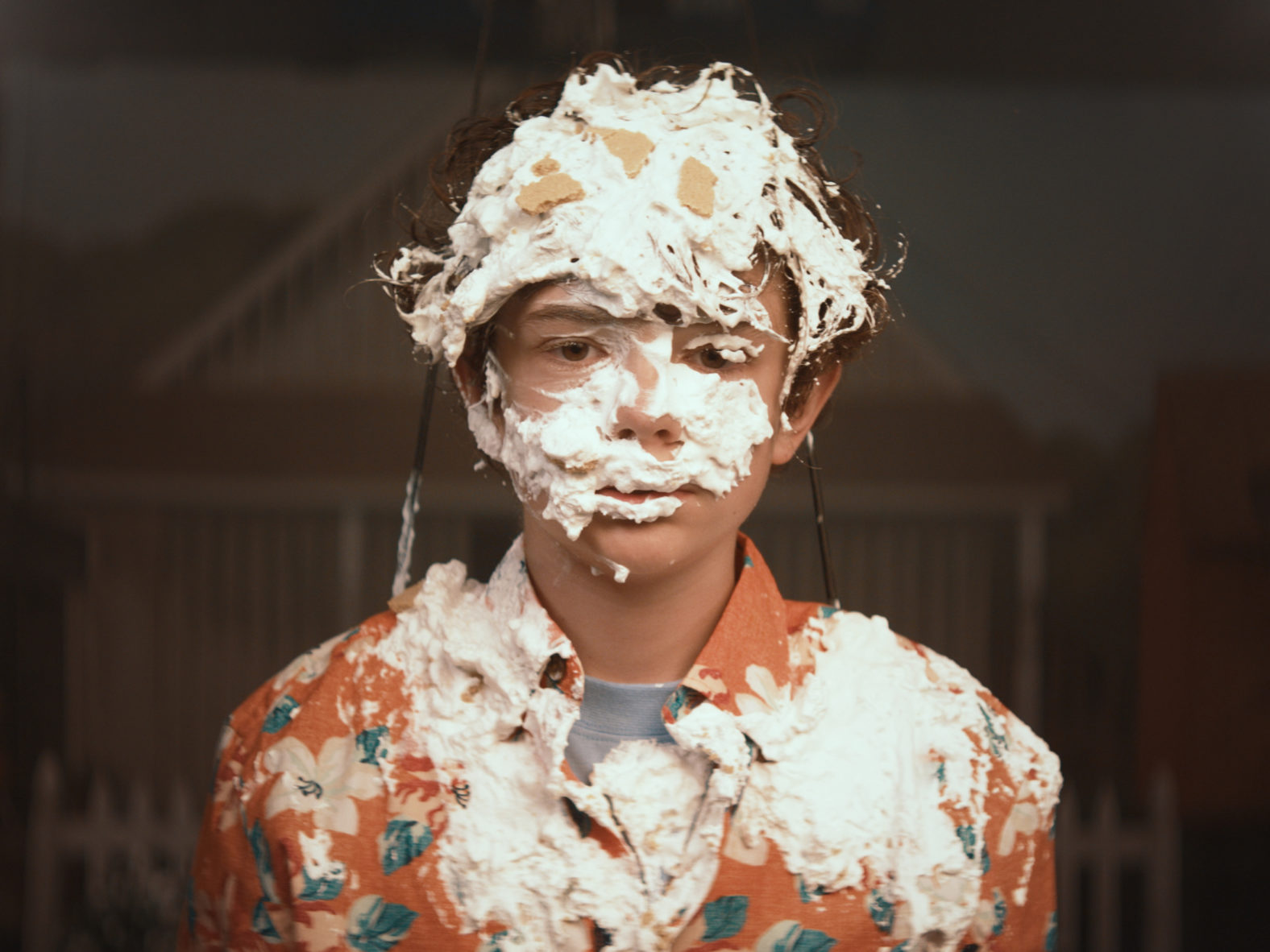After a rocky run through what would have been the peak of his career, Shia LaBeouf makes a bold and dramatic return to form portraying a fictionalised version of his own father in Honey Boy, adapted from his rehab therapy and directed by Alma Har’el in her major feature debut.
Set in Los Angeles across two decades, Honey Boy explores the life and trauma of Shia LaBeouf through the lens of the character Otis Lort. We first meet adult Otis (Lucas Hedges, Boy Erased and Manchester by the Sea) on a film set in 2005, being thrown by a stunt pulley. There’s a vastness in his eyes that hints at a deep internal struggle and before long this struggle manifests itself in a montage of alcohol and drug fuelled sex and aggression. In a scene lifted from LaBeouf’s own 2017 arrest footage, Otis verbally assaults police officers as they detain him against a patrol car. Perhaps it’s because we know who this character is supposed to be, or because we saw this string of events play out in real life, that we feel sympathy for Otis rather than secondhand embarrassment or shame.
Called one of 2018’s “most ubiquitous movie actors” by the Washington Post, Hedges once again expertly taps into the instincts that earned him his Academy Award and Golden Globes nominations. Whether he is writing, writhing, screaming, crying or silent, every second that Hedges is on screen as Otis is weighted with a robust and powerful aura – the kind that makes you want to reach out and touch, to reassure and insist everything will be okay in the end. His personification of the pain and anguish young LaBeouf experienced while in the Hollywood limelight is fully compelling and more than enough to make even the biggest cynics and eye-rollers sit up and feel a pang for the young actor-turned-public-wreck.
Transitioning into 1995 we are introduced into a 12-year-old Otis (portrayed by A Quiet Place’s Noah Jupe) having a pie thrown in his face. Har’el uses excellent parallel imagery here, utilising production sets, stunt set-up, costumes and clapper slates emblazoned with the year to create clear links between the young and old iterations of her protagonist. Jupe, for such a young actor, makes a startlingly powerful impression on screen as a young Otis Lort. Jupe has an incredible power in front of the camera, and as someone who is very much a child actor, the role seems tailor made for him. He exhibits a deep understanding of LaBeouf’s roots as a professional with little autonomy and proves himself more than capable of propelling the story on his own steam.
And between the two Otis Lorts is LaBeouf himself, paunch and balding and foul but totally engaging on screen. James Lort as a character is a rare window into the kind of person we as an audience could only imagine LaBeouf’s father to be – a deeply troubled Vietnam War veteran struggling with PTSD and substance abuse. What seems like a bizarre idea at first, to have LaBeouf play his own father on film, is a visionary idea in practice. It’s clear from the outset that the senior Lort is an exhausting roller coaster of a human being, constantly rising and diving between a friend and an enemy to his son, but never once sitting firmly as a parent. Everything that LaBeouf experienced as a child and young adult has been channelled into this portrayal, from the emotional manipulation and raging anger to abuse and neglect and only LaBeouf could truly have done the origin of his trauma justice.
It would be completely remiss to talk about this film without acknowledging the sheer bravery of Shia LaBeouf. After spending his formative years under constant public scrutiny, countless run-ins with the law, and a public image of just another child star gone wrong. Putting the most personal parts of one’s life on display is difficult at the best of times, but to do so on such a grand scale with such delicacy is truly commendable. LaBeouf has proved beyond a shadow of a doubt that his place in life is on film and television screens.
Finally, in terms of cinematography and direction, Har’el does an incredible job, especially a filmmaker whose origins are in documentary film. Her insightfulness as a director leads her audience through seamless transitions that frequently blur the line between dream, memory and reality to create a beautiful and tragic filmscape of Hollywood at its low points. Scenes and dialogue blend together and what we’re left with is a powerful 94-minute therapy session about how wounds shape us, even in ways we couldn’t possibly imagine.
